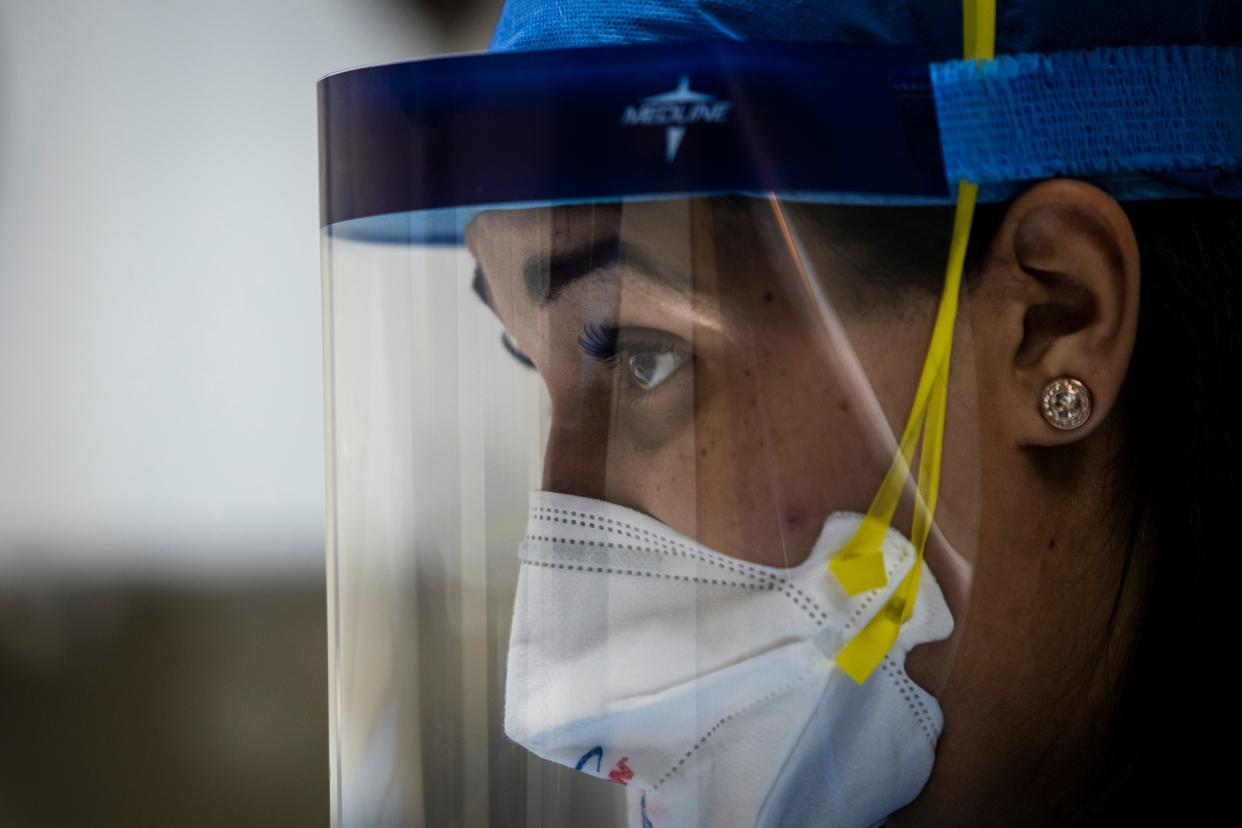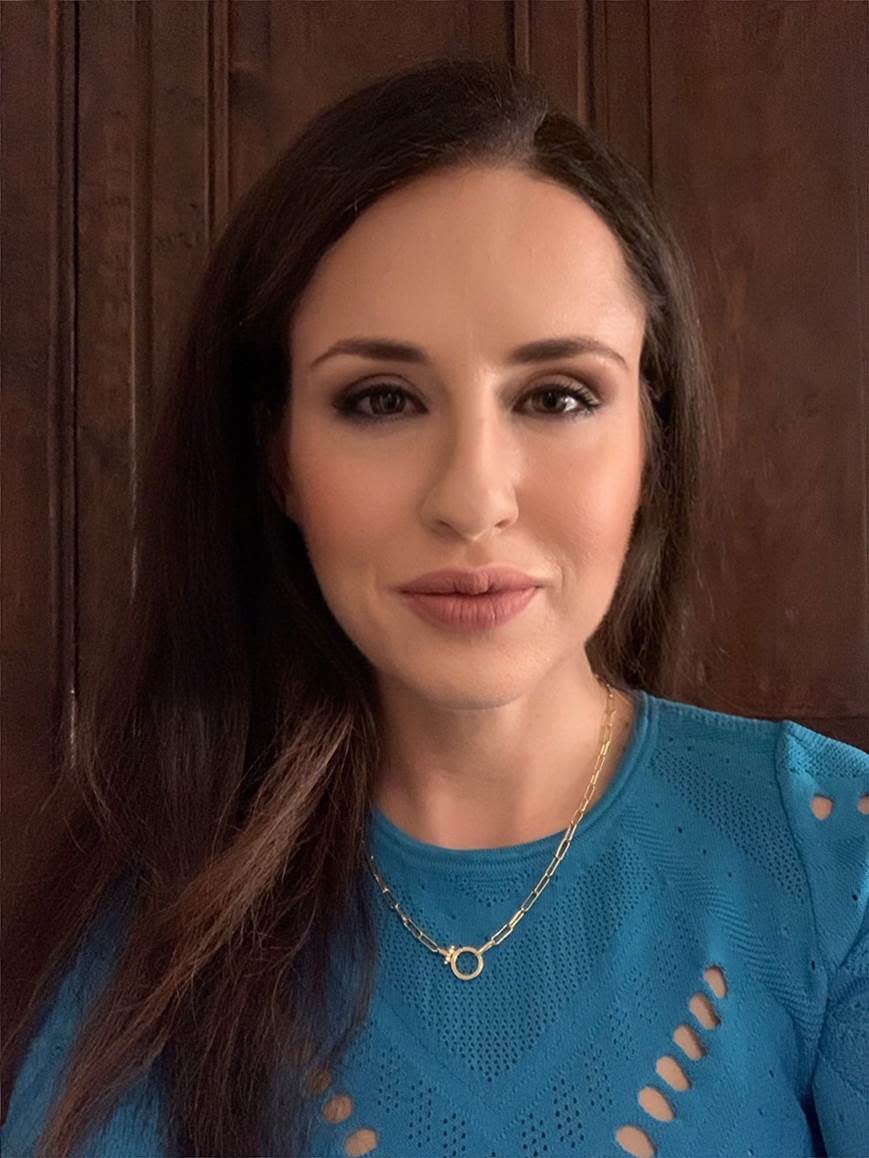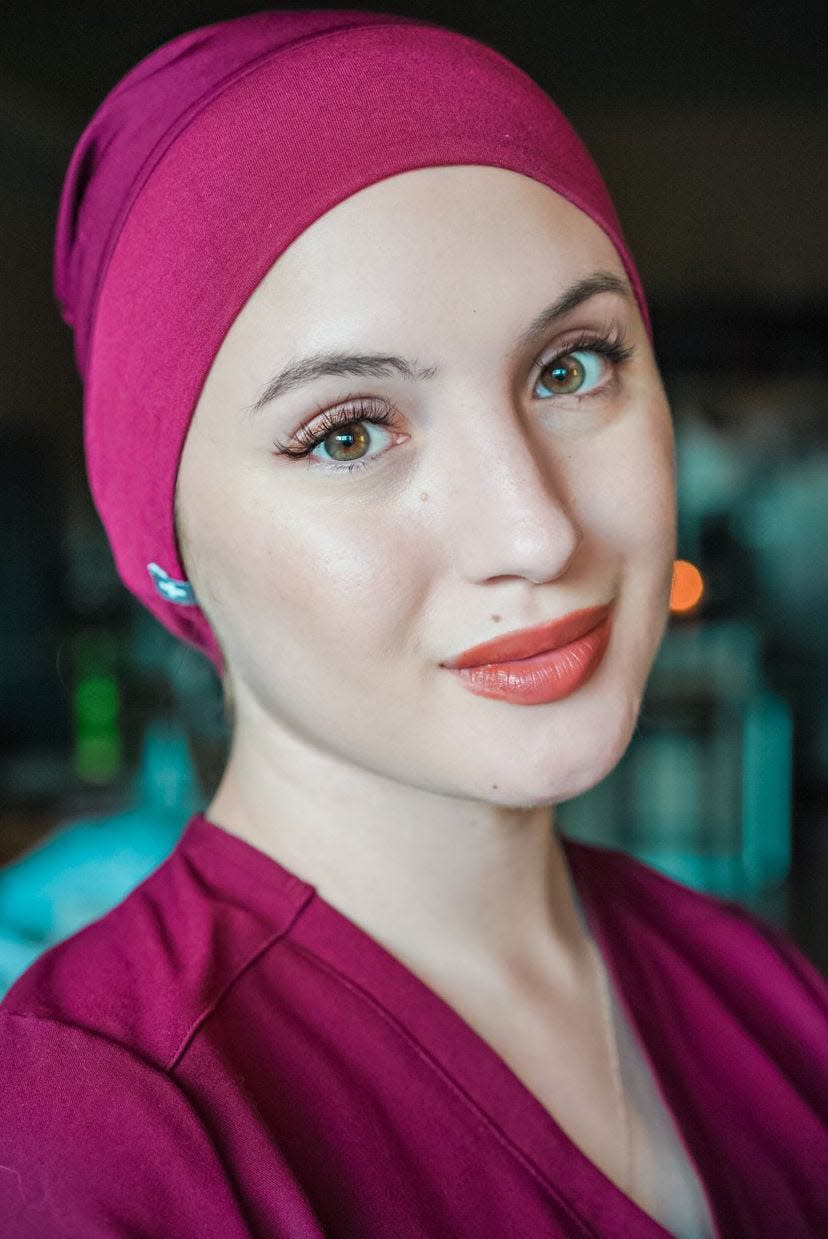Nurses get spit on, kicked, assaulted. Stop hurting us. We are here to help you.

- Oops!Something went wrong.Please try again later.
A physician friend shared a photo of a sign the staff posted in the hospital where she works. It warned readers: Do not assault us, we’re here to help you. A year ago, health care workers were being called heroes, but now they’re being attacked by the very people whose lives they’re trying to save.
As a nurse and a doctor, we need you to understand the epidemic of violence that’s raging in our hospitals right now, and what’s at stake if we don’t stop it.
In a hospital system in Georgia, where a patient grabbed a nurse by the wrist and kicked her in the ribs, officials said they dealt with violent assaults nearly twice a day in 2020. At a hospital in Missouri, staff members now have panic buttons attached to their badges to immediately alert security guards if they are being assaulted.
Opinions in your inbox: Get a digest of our takes on current events every day
In recent surveys from the National Nurses United union, the number of registered nurses reporting an increase in violence in their hospitals went up by nearly 10 percentage points between last March and September.
Stop hurting us. We're healing you.
It’s not just happening to front-line workers in hospitals. The science journal Nature interviewed over 300 scientists who have spoken publicly about COVID-19 and found that 15% had received death threats. Local public health officials recently issued a plea to the Justice Department for help dealing with an increase in harassment and threats of violence during the pandemic.
And it’s not just happening in the United States. One study catalogued more than 1,100 threats or acts of violence against health care workers and facilities around the world last year, many of which were specifically related to COVID-19. In 2020, the World Medical Association declared that violence against health personnel is an international emergency that requires urgent action.
Why are hospital and public health workers under attack? Part of the reason is that COVID-related misinformation has created an environment of fear and distrust within our health care systems. But COVID-19 has only exacerbated an existing, systemic problem.
Even before the pandemic, health care workers were already much more likely to experience assault than workers in any other industry. Federal data from 2018 shows that health care workers accounted for 73% of all nonfatal injuries and illnesses from workplace violence.
Common courtesy with COVID-19: I tested positive for COVID. Do I have to tell people? How do I tell them?
There are a number of factors that can put health care workers at higher risk for assault – including insufficient staffing levels to patients in distress. There is a complex emotional relationship between caregiver and patient, especially for nurses, nursing assistants and others who work directly at the bedside. When tensions rise, patients might take out their fear or anger on the nursing staff who are closest to them. We’ve heard countless stories of patients spitting on nurses and other health care workers after testing positive for COVID. We personally know nurses who contracted COVID after having been spat on.

Nursing staff are often the most exposed to the risk of workplace violence, and they must grapple with that risk every time they clock in for a shift. When violence happens, it may go unreported by nursing staff who fear they might be blamed for letting violence happen. Because of the high-touch nature of the work, the culture of nursing and health care puts the onus of many adverse events on individual caregivers rather than systemic failures. This leaves health care workers to largely fend for themselves – hoping their personal protective equipment and eyewear will protect them if they get spit on, and never wearing a stethoscope around their necks while in a patient’s room.
Understanding the CDC: Our most important New Year's resolution should be better communication on COVID-19
Shouldn't need protection from patients
The distrusted hero is a familiar theme in superhero stories. People can’t help but notice that the hero is always nearby when bad things happen. And sometimes, they think the hero isn’t doing enough to save them. Then people act out of fear, uncertainty and frustration.
In "The Dark Knight" series, Batman is ostracized by the people of Gotham City and a warrant issued for his arrest. At one point, everyone in Gotham City is behaving so badly against their own interests that it makes you wonder why Batman tries so hard to save them.

The thing is, health care workers are not heroes. We are people doing our jobs. Jobs that are getting harder and harder to do, just as we’re hitting another inflection point in the pandemic. If more people don’t get vaccinated, the virus could take on newer and potentially more problematic forms, sending more sick and enraged people to the emergency room. It’s a vicious cycle.
The hero narrative sets an expectation of martyrdom and self-sacrifice. It was never about honoring health care workers for their efforts. It was about keeping us working through violence and other impossible circumstances. But how much more can we really take?
About 1 in 5 health care workers have left their jobs since the pandemic started, a loss of nearly half a million workers since February 2020. And those of us who remain are pushed to their limits by a system that does not prioritize oursafety and wellbeing. We also worry for the new nurses, physicians and other health care professionals who are starting their careers during this rise in violence and distrust.
In a society where all other norms are breaking down, is it fair to expect us to put up with abuse in order to do the job we took an oath to do? We all have a common enemy, and it’s called COVID-19. As long as we’re fighting each other, the disease is winning the war.
Dr. Shoshana Ungerleider is a practicing internal medicine physician in San Francisco, host of the "TED Health" podcast and founder of endwellproject.org
Sarah Warren ADN, RN is a registered nurse and mental health advocate. She's working at a hospital in South Florida.
You can read diverse opinions from our Board of Contributors and other writers on the Opinion front page, on Twitter @usatodayopinion and in our daily Opinion newsletter. To respond to a column, submit a comment to letters@usatoday.com.
This article originally appeared on USA TODAY: Nurses assaulted: COVID-19, pandemic are the enemy, not us

